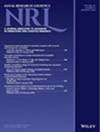具有 ARMA 需求的供应链中的部分信息共享
IF 2.1
4区 管理学
Q3 OPERATIONS RESEARCH & MANAGEMENT SCIENCE
引用次数: 0
摘要
在本文中,我们提出了一种新的信息共享机制,它允许零售商控制共享信息的数量,从而限制信息泄漏,同时还能帮助供应商做出更明智的决策,提高供应链的整体效率。对泄漏信息量的控制有利于信息共享,因为如果没有这种控制,零售商可能会因为担心信息泄漏而不共享信息。具体来说,我们分析了一个供应链,在这个供应链中,零售商观察到单一产品的自回归移动平均(ARMA)需求,所有参与者都使用近视的 "从订单到订单"(order-up-to)策略来决定他们的订单。我们引入了一类新的信息共享安排,称为部分信息冲击(PaIS)共享。这一类新的信息共享协议扩展了之前研究过的需求共享和完全信息冲击共享机制。我们证明,零售商可以构建一种 PaIS 共享安排,在控制信息泄露量的同时,实现中间水平的信息共享。我们描述了何时一种 PaIS 安排比另一种安排对供应商更有价值。最后,我们通过数值研究强调,在供应商获得更好的预测和零售商经历更高水平的泄漏之间,并不一定需要权衡利弊。本文章由计算机程序翻译,如有差异,请以英文原文为准。
Partial information sharing in supply chains with ARMA demand
In this paper we suggest a novel mechanism for information sharing that allows a retailer to control the amount of shared information, and thus to limit information leakage, while still assisting the supplier to make better‐informed decisions and improve the overall efficiency of the supply chain. The control of the amount of leaked information facilitates information sharing because, absent such control, a retailer may refrain from sharing information due to the concern of information leakage. Specifically, we analyze a supply chain in which a retailer observes Autoregressive Moving Average (ARMA) demand for a single product where all players use the myopic order‐up‐to policy for determining their orders. We introduce a new class of information sharing arrangements, coined partial‐information shock (PaIS) sharing. This new class of information sharing agreements extends the previously studied mechanisms of demand sharing and full‐information shock sharing. We demonstrate that the retailer can construct a PaIS sharing arrangement that allows for an intermediate level of information sharing while simultaneously controlling the amount of leakage. We characterize when one PaIS arrangement will be more valuable to the supplier than another. We conclude with a numerical study that highlights that there does not necessarily need to be a tradeoff between the supplier having a better forecast and the retailer experiencing a higher level of leakage.
求助全文
通过发布文献求助,成功后即可免费获取论文全文。
去求助
来源期刊

Naval Research Logistics
管理科学-运筹学与管理科学
CiteScore
4.20
自引率
4.30%
发文量
47
审稿时长
8 months
期刊介绍:
Submissions that are most appropriate for NRL are papers addressing modeling and analysis of problems motivated by real-world applications; major methodological advances in operations research and applied statistics; and expository or survey pieces of lasting value. Areas represented include (but are not limited to) probability, statistics, simulation, optimization, game theory, quality, scheduling, reliability, maintenance, supply chain, decision analysis, and combat models. Special issues devoted to a single topic are published occasionally, and proposals for special issues are welcomed by the Editorial Board.
 求助内容:
求助内容: 应助结果提醒方式:
应助结果提醒方式:


